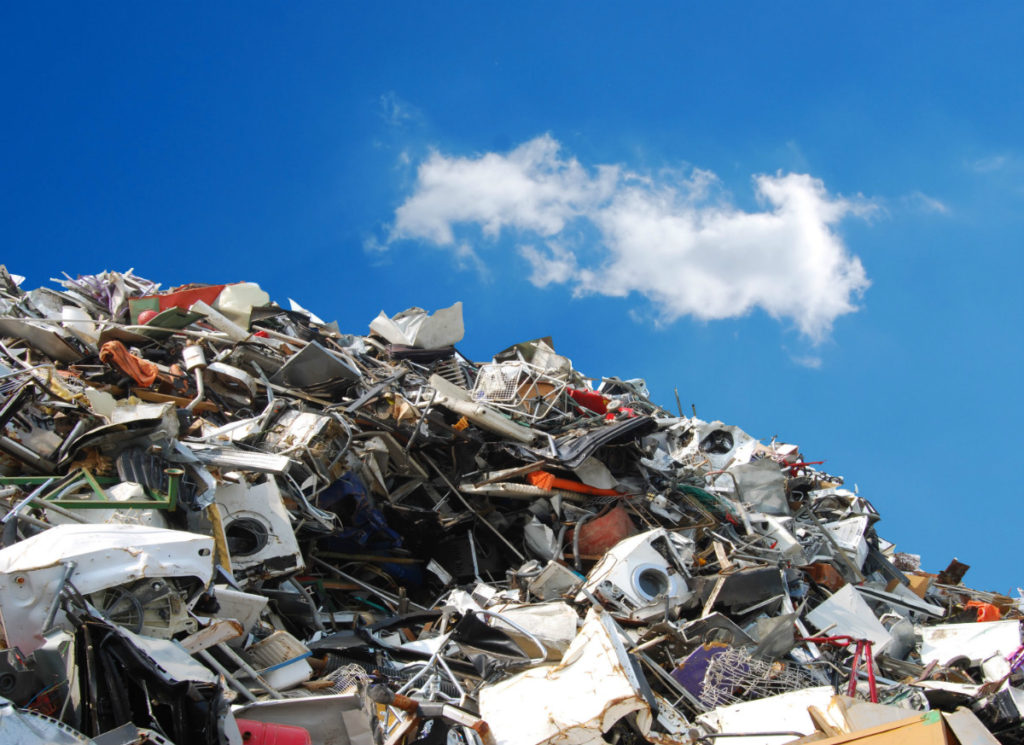For dumpster, container, and large loads please call
For dumpster, container, and large loads please call

Have you ever wondered what happens to your old scrap metal once it leaves your home or business and heads to the scrap metal recycling facility in Marietta, GA ? It’s a journey where a seemingly useless pile of metal gets a second life all thanks to the magic of recycling. From scrap yard to reprocessed material, the entire process is both fascinating and essential for the environment and economy.
In this brief article brought to you by M&M Recycling, we take a moment to walk in the shoes of a piece of scrap metal. Imagine you’ve been thrown out with all your metal friends – old copper piping, rusty steel parts, and a few lonely aluminum cans. You’re heading to the scrap yard for your big adventure, and you don’t know what to expect. Let's break it down, step by step.
Once you’ve arrived at the scrap metal recycling yard, a team of recyclers begins the sorting process. They look at you and your fellow metals to identify which category you fall into: ferrous or non-ferrous.
You’re going to have to wait your turn as the team uses magnets to pick up all the ferrous metals (iron and steel) while leaving you and your non-ferrous friends behind. This might feel a bit discriminatory, but don't worry – you’re in good hands!
You might have been dumped in a pile, but you're not going to stay there long. Everything is sorted by type, and your type of metal must be separated from the others to ensure the recycling process is smooth and profitable.
If you're copper, you’ll get placed with the other copper scraps; if you’re aluminum, you’ll join your lightweight friends. The goal is to get the metals in the best possible shape for their next life.
After sorting, the scrap metal heads to a shredder. Here’s where things get loud! The shredder turns you into smaller and more manageable pieces. This is to make it easier for the next steps in the process.
Once you're in smaller pieces, it’s time for the next big transformation. This is where the magic really happens. You get thrown into a huge furnace that melts you down to a liquid state. This is an intense process, but it’s necessary to separate the impurities from the material.
For metals like copper, this is a particularly important step. Copper is a great conductor of electricity, and it has to be purified for it to be useful again. Once purified, you’ll be poured into molds and allowed to solidify into clean metal blocks known as ingots. These ingots are now ready to head to their next destination.
Now that you’ve been refined and transformed, you're ready to take on a new life. These ingots will be sold to manufacturers who will use them to make everything from electrical wiring to car parts to new kitchen appliances. You might have been a broken down car part once, but now you could be the frame of a shiny new car!
Recycled metals like aluminum, steel, and copper are highly sought after because they save energy, reduce waste, and help manufacturers keep their costs lower than if they were using virgin materials. Not only does this save energy, but it also helps reduce greenhouse gas emissions.
While the journey of each scrap metal may differ, the process is always valuable and important for everyone involved. From a scrap metal buyer’s perspective, the process is all about turning waste into something useful, which is good for the planet, the economy, and everyone in between.